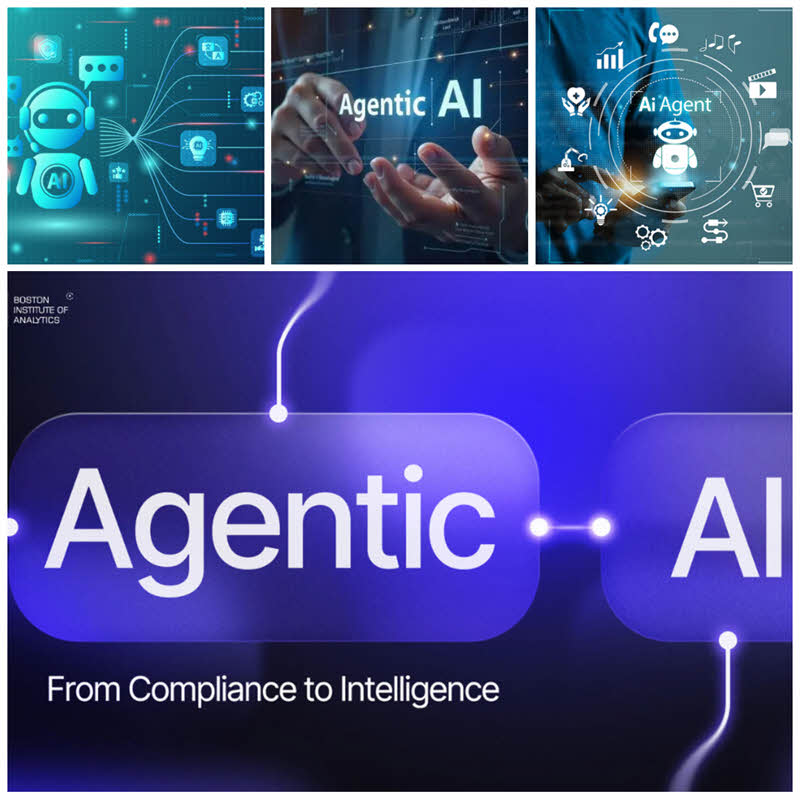
What Is Agentic AI? The Next Phase of Artificial Intelligence
Last updated: November 07, 2025 Read in fullscreen view
- 05 Oct 2025
 The New Facebook Algorithm: A Paradigm Shift in Content Discovery 66/109
The New Facebook Algorithm: A Paradigm Shift in Content Discovery 66/109 - 01 May 2023
 Understanding Business as Usual (BAU) and How to Transition 52/930
Understanding Business as Usual (BAU) and How to Transition 52/930 - 06 Dec 2025
 Enterprise Operations 2.0: Why AI Agents Are Replacing Traditional Automation 48/83
Enterprise Operations 2.0: Why AI Agents Are Replacing Traditional Automation 48/83 - 23 Dec 2025
 Microsoft Power Automate vs. n8n: What’s the Real Difference? 47/77
Microsoft Power Automate vs. n8n: What’s the Real Difference? 47/77 - 25 Nov 2025
 How AI Agents Are Redefining Enterprise Automation and Decision-Making 46/96
How AI Agents Are Redefining Enterprise Automation and Decision-Making 46/96 - 06 Nov 2025
 Top 10 AI Development Companies in the USA to Watch in 2026 41/90
Top 10 AI Development Companies in the USA to Watch in 2026 41/90 - 13 Oct 2021
 Outsourcing Software Development: MVP, Proof of Concept (POC) and Prototyping. Which is better? 40/486
Outsourcing Software Development: MVP, Proof of Concept (POC) and Prototyping. Which is better? 40/486 - 02 Dec 2025
 The Question That Shook Asia: What Happens When We Ask AI to Choose Between a Mother and a Wife? 37/63
The Question That Shook Asia: What Happens When We Ask AI to Choose Between a Mother and a Wife? 37/63 - 03 Oct 2025
 Top CMS Trends 2026: The Future of Digital Content Management 37/55
Top CMS Trends 2026: The Future of Digital Content Management 37/55 - 01 Jul 2025
 The Hidden Costs of Not Adopting AI Agents: Risk of Falling Behind 37/163
The Hidden Costs of Not Adopting AI Agents: Risk of Falling Behind 37/163 - 20 Dec 2025
 The Future of IT Consulting: Key Trends for 2026–2030 35/67
The Future of IT Consulting: Key Trends for 2026–2030 35/67 - 22 Dec 2025
 The Role of Automotive Software in Building Smarter Vehicles 35/59
The Role of Automotive Software in Building Smarter Vehicles 35/59 - 03 Dec 2025
 Templafy Features Explained: The Ultimate Guide to Streamlined Content Management 33/59
Templafy Features Explained: The Ultimate Guide to Streamlined Content Management 33/59 - 12 Oct 2022
 14 Common Reasons Software Projects Fail (And How To Avoid Them) 31/567
14 Common Reasons Software Projects Fail (And How To Avoid Them) 31/567 - 03 Nov 2023
 Why Is Billable Viable Product An Alternative To Minimum Viable Product? 31/200
Why Is Billable Viable Product An Alternative To Minimum Viable Product? 31/200 - 28 Nov 2025
 How AI Will Transform Vendor Onboarding and Seller Management in 2026 30/82
How AI Will Transform Vendor Onboarding and Seller Management in 2026 30/82 - 16 Oct 2025
 AI Inference Explained Simply: What Developers Really Need to Know 30/58
AI Inference Explained Simply: What Developers Really Need to Know 30/58 - 19 Oct 2021
 Software development life cycles 29/701
Software development life cycles 29/701 - 01 Sep 2022
 Facts Chart: Why Do Software Projects Fail? 29/596
Facts Chart: Why Do Software Projects Fail? 29/596 - 02 Oct 2022
 The Real Factors Behind Bill Gates’ Success: Luck, Skills, or Connections? 28/361
The Real Factors Behind Bill Gates’ Success: Luck, Skills, or Connections? 28/361 - 29 Nov 2021
 Memorandum of Understanding (MOU) for Partnership Agreements 28/544
Memorandum of Understanding (MOU) for Partnership Agreements 28/544 - 16 Dec 2025
 Reducing Cognitive Friction in Software Development: A Guide to Faster, Happier Teams 28/77
Reducing Cognitive Friction in Software Development: A Guide to Faster, Happier Teams 28/77 - 10 Sep 2024
 Leading Remote Teams in Hybrid Work Environments 27/160
Leading Remote Teams in Hybrid Work Environments 27/160 - 05 Jun 2025
 How AI-Driven Computer Vision Is Changing the Face of Retail Analytics 26/135
How AI-Driven Computer Vision Is Changing the Face of Retail Analytics 26/135 - 07 Nov 2025
 Online vs. Offline Machine Learning Courses in South Africa: Which One Should You Pick? 25/70
Online vs. Offline Machine Learning Courses in South Africa: Which One Should You Pick? 25/70 - 14 Aug 2024
 From Steel to Software: The Reluctant Evolution of Japan's Tech Corporates 24/545
From Steel to Software: The Reluctant Evolution of Japan's Tech Corporates 24/545 - 25 Dec 2025
 What Is Algorithmic Fairness? Who Determines the Value of Content: Humans or Algorithms? 23/47
What Is Algorithmic Fairness? Who Determines the Value of Content: Humans or Algorithms? 23/47 - 23 Dec 2024
 Garbage In, Megabytes Out (GIMO): How to Rise Above AI Slop and Create Real Signal 23/60
Garbage In, Megabytes Out (GIMO): How to Rise Above AI Slop and Create Real Signal 23/60 - 31 Dec 2025
 10 Skills to Make You "Irreplaceable" in the Next 3 Years (even if AI changes everything) 22/34
10 Skills to Make You "Irreplaceable" in the Next 3 Years (even if AI changes everything) 22/34 - 21 Nov 2025
 The Rise of AgentOps: How Enterprises Are Managing and Scaling AI Agents 22/69
The Rise of AgentOps: How Enterprises Are Managing and Scaling AI Agents 22/69 - 11 Oct 2022
 Why choose Billable Viable Product (BVP) over Minimum Viable Product (MVP) 22/361
Why choose Billable Viable Product (BVP) over Minimum Viable Product (MVP) 22/361 - 24 Dec 2024
 Artificial Intelligence and Cybersecurity: Building Trust in EFL Tutoring 20/180
Artificial Intelligence and Cybersecurity: Building Trust in EFL Tutoring 20/180 - 17 Mar 2025
 Integrating Salesforce with Yardi: A Guide to Achieving Success in Real Estate Business 19/202
Integrating Salesforce with Yardi: A Guide to Achieving Success in Real Estate Business 19/202 - 23 Jun 2025
 AI Avatars in the Metaverse: How Digital Beings Are Redefining Identity and Social Interaction 18/125
AI Avatars in the Metaverse: How Digital Beings Are Redefining Identity and Social Interaction 18/125 - 03 Dec 2025
 IT Outsourcing Solutions Explained: What, How, Why, When 18/40
IT Outsourcing Solutions Explained: What, How, Why, When 18/40 - 12 Jan 2026
 Companies Developing Custom AI Models for Brand Creative: Market Landscape and Use Cases 18/29
Companies Developing Custom AI Models for Brand Creative: Market Landscape and Use Cases 18/29 - 16 Apr 2021
 Insightful Business Technology Consulting at TIGO 18/412
Insightful Business Technology Consulting at TIGO 18/412 - 21 Dec 2023
 Top 12 Low-Code Platforms To Use in 2024 18/1248
Top 12 Low-Code Platforms To Use in 2024 18/1248 - 09 Jul 2024
 What Is Artificial Intelligence and How Is It Used Today? 18/243
What Is Artificial Intelligence and How Is It Used Today? 18/243 - 18 Aug 2024
 The Future of Web Development: Emerging Trends and Technologies Every Developer Should Know 17/201
The Future of Web Development: Emerging Trends and Technologies Every Developer Should Know 17/201 - 05 Sep 2023
 The Cold Start Problem: How to Start and Scale Network Effects 17/203
The Cold Start Problem: How to Start and Scale Network Effects 17/203 - 29 Oct 2024
 Top AI Tools and Frameworks You’ll Master in an Artificial Intelligence Course 17/385
Top AI Tools and Frameworks You’ll Master in an Artificial Intelligence Course 17/385 - 22 Nov 2024
 The Role of AI in Enhancing Business Efficiency and Decision-Making 17/196
The Role of AI in Enhancing Business Efficiency and Decision-Making 17/196 - 04 Oct 2021
 Product Validation: The Key to Developing the Best Product Possible 17/320
Product Validation: The Key to Developing the Best Product Possible 17/320 - 07 Oct 2025
 Case Study: Using the “Messaging House” Framework to Build a Digital Transformation Roadmap 17/86
Case Study: Using the “Messaging House” Framework to Build a Digital Transformation Roadmap 17/86 - 28 Oct 2025
 The Future of Real Estate: Key Trends and Essential Lessons in Digital Transformation 16/60
The Future of Real Estate: Key Trends and Essential Lessons in Digital Transformation 16/60 - 20 Feb 2025
 How Machine Learning is Shaping the Future of Digital Advertising 16/123
How Machine Learning is Shaping the Future of Digital Advertising 16/123 - 05 Mar 2021
 How do you minimize risks when you outsource software development? 16/336
How do you minimize risks when you outsource software development? 16/336 - 31 Aug 2022
 What are the best practices for software contract negotiations? 16/260
What are the best practices for software contract negotiations? 16/260 - 02 Dec 2024
 The Intersection of AI and Business Analytics: Key Concepts to Master in Your Business Analytics Course 15/295
The Intersection of AI and Business Analytics: Key Concepts to Master in Your Business Analytics Course 15/295 - 27 Jul 2024
 Positive Psychology in the Digital Age: Future Directions and Technologies 15/408
Positive Psychology in the Digital Age: Future Directions and Technologies 15/408 - 31 Dec 2022
 The New Normal for Software Development 15/364
The New Normal for Software Development 15/364 - 17 Oct 2025
 MLOps vs AIOps: What’s the Difference and Why It Matters 15/100
MLOps vs AIOps: What’s the Difference and Why It Matters 15/100 - 10 Nov 2025
 Multi-Modal AI Agents: Merging Voice, Text, and Vision for Better CX 14/97
Multi-Modal AI Agents: Merging Voice, Text, and Vision for Better CX 14/97 - 10 Jul 2025
 Building AI-Driven Knowledge Graphs from Unstructured Data 14/162
Building AI-Driven Knowledge Graphs from Unstructured Data 14/162 - 18 Jul 2024
 The 8 Best ways to Innovate your SAAS Business Model in 2024 14/256
The 8 Best ways to Innovate your SAAS Business Model in 2024 14/256 - 08 Nov 2022
 4 tips for meeting tough deadlines when outsourcing projects to software vendor 14/291
4 tips for meeting tough deadlines when outsourcing projects to software vendor 14/291 - 20 Dec 2021
 What is Hybrid Mobile App Development? 14/378
What is Hybrid Mobile App Development? 14/378 - 07 Aug 2022
 Things to Consider When Choosing a Technology Partner 14/283
Things to Consider When Choosing a Technology Partner 14/283 - 07 Jul 2021
 The 5 Levels of IT Help Desk Support 13/448
The 5 Levels of IT Help Desk Support 13/448 - 28 Jul 2022
 POC, Prototypes, Pilots and MVP: What Are the Differences? 13/697
POC, Prototypes, Pilots and MVP: What Are the Differences? 13/697 - 31 Dec 2023
 Software Development Outsourcing Trends to Watch Out for in 2024 13/233
Software Development Outsourcing Trends to Watch Out for in 2024 13/233 - 08 Jan 2024
 Ask Experts: Explicitation/Implicitation and Elicitation; two commonly used but barely unraveled concepts 12/327
Ask Experts: Explicitation/Implicitation and Elicitation; two commonly used but barely unraveled concepts 12/327 - 09 Oct 2024
 Short-Form Video Advertising: The Secret to Captivating Your Audience 12/134
Short-Form Video Advertising: The Secret to Captivating Your Audience 12/134 - 07 Nov 2022
 Why Design Thinking can save the outsourcing industry 12/194
Why Design Thinking can save the outsourcing industry 12/194 - 10 Apr 2021
 RFP vs POC: Why the proof of concept is replacing the request for proposal 12/322
RFP vs POC: Why the proof of concept is replacing the request for proposal 12/322 - 28 Oct 2022
 Build Operate Transfer (B.O.T) Model in Software Outsourcing 12/405
Build Operate Transfer (B.O.T) Model in Software Outsourcing 12/405 - 25 Jan 2025
 The Decline of Traditional SaaS and the Rise of AI-first Applications 12/109
The Decline of Traditional SaaS and the Rise of AI-first Applications 12/109 - 24 Oct 2025
 AI Agents in SaaS Platforms: Automating User Support and Onboarding 12/77
AI Agents in SaaS Platforms: Automating User Support and Onboarding 12/77 - 06 Mar 2021
 4 things you need to do before getting an accurate quote for your software development 11/679
4 things you need to do before getting an accurate quote for your software development 11/679 - 03 Nov 2022
 Top questions and answers you must know before ask for software outsourcing 11/292
Top questions and answers you must know before ask for software outsourcing 11/292 - 16 Feb 2021
 Choose Outsourcing for Your Non Disclosure Agreement (NDA) 11/173
Choose Outsourcing for Your Non Disclosure Agreement (NDA) 11/173 - 04 Oct 2022
 Which ERP implementation strategy is right for your business? 11/313
Which ERP implementation strategy is right for your business? 11/313 - 10 Sep 2024
 AI in Email Marketing: Personalization and Automation 11/183
AI in Email Marketing: Personalization and Automation 11/183 - 05 Aug 2024
 Revisiting the Mistake That Halted Japan's Software Surge 10/342
Revisiting the Mistake That Halted Japan's Software Surge 10/342 - 03 Jan 2024
 Why Partnership is important for Growth? 10/159
Why Partnership is important for Growth? 10/159 - 03 May 2024
 The Iceberg of Ignorance 10/403
The Iceberg of Ignorance 10/403 - 16 Sep 2022
 Examples Of Augmented Intelligence In Today’s Workplaces Shaping the Business as Usual 10/436
Examples Of Augmented Intelligence In Today’s Workplaces Shaping the Business as Usual 10/436 - 12 Dec 2021
 Zero Sum Games Agile vs. Waterfall Project Management Methods 10/409
Zero Sum Games Agile vs. Waterfall Project Management Methods 10/409 - 31 Jul 2025
 Top WooCommerce Pre-Order Plugins with Countdown & Discounts 10/93
Top WooCommerce Pre-Order Plugins with Countdown & Discounts 10/93 - 06 May 2025
 How Machine Learning Is Transforming Data Analytics Workflows 10/187
How Machine Learning Is Transforming Data Analytics Workflows 10/187 - 18 Jul 2021
 How To Ramp Up An Offshore Software Development Team Quickly 9/593
How To Ramp Up An Offshore Software Development Team Quickly 9/593 - 19 Dec 2023
 How AI is Transforming Software Development? 9/294
How AI is Transforming Software Development? 9/294 - 06 Dec 2024
 Steps For Integrating Sustainable Practices Into Business Operations 8/142
Steps For Integrating Sustainable Practices Into Business Operations 8/142 - 09 Mar 2022
 Consultant Implementation Pricing 8/213
Consultant Implementation Pricing 8/213 - 16 Aug 2022
 What is a Headless CMS? 8/272
What is a Headless CMS? 8/272 - 09 Jan 2022
 How to Bridge the Gap Between Business and IT? 8/178
How to Bridge the Gap Between Business and IT? 8/178 - 21 Aug 2024
 What is Singularity and Its Impact on Businesses? 8/403
What is Singularity and Its Impact on Businesses? 8/403 - 22 Sep 2025
 Why AI Is Critical for Accelerating Drug Discovery in Pharma 8/83
Why AI Is Critical for Accelerating Drug Discovery in Pharma 8/83 - 05 Oct 2021
 Shiny Object Syndrome: Why Your Business Isn't "Going Digital" 7/350
Shiny Object Syndrome: Why Your Business Isn't "Going Digital" 7/350 - 21 Apr 2025
 Agent AI in Multimodal Interaction: Transforming Human-Computer Engagement 7/188
Agent AI in Multimodal Interaction: Transforming Human-Computer Engagement 7/188 - 04 Oct 2023
 The Future of Work: Harnessing AI Solutions for Business Growth 7/275
The Future of Work: Harnessing AI Solutions for Business Growth 7/275 - 06 Mar 2024
 [SemRush] What Are LSI Keywords & Why They Don‘t Matter 7/176
[SemRush] What Are LSI Keywords & Why They Don‘t Matter 7/176 - 01 Mar 2024
 (AI) Artificial Intelligence Terms Every Beginner Should Know 7/303
(AI) Artificial Intelligence Terms Every Beginner Should Know 7/303 - 01 Mar 2023
 How do you deal with disputes and conflicts that may arise during a software consulting project? 7/165
How do you deal with disputes and conflicts that may arise during a software consulting project? 7/165 - 15 Apr 2024
 Weights & Biases: The AI Developer Platform 7/189
Weights & Biases: The AI Developer Platform 7/189 - 30 Jul 2024
 The Future of IT Consulting: Trends and Opportunities 6/190
The Future of IT Consulting: Trends and Opportunities 6/190 - 12 Aug 2024
 Understanding Google Analytics in Mumbai: A Beginner's Guide 6/99
Understanding Google Analytics in Mumbai: A Beginner's Guide 6/99 - 25 Sep 2024
 Enhancing Decision-Making Skills with an MBA: Data-Driven Approaches for Business Growth 6/201
Enhancing Decision-Making Skills with an MBA: Data-Driven Approaches for Business Growth 6/201 - 07 Oct 2022
 Digital Transformation: Become a Technology Powerhouse 6/244
Digital Transformation: Become a Technology Powerhouse 6/244 - 27 Aug 2025
 How AI Consulting Is Driving Smarter Diagnostics and Hospital Operations 6/100
How AI Consulting Is Driving Smarter Diagnostics and Hospital Operations 6/100 - 29 Aug 2025
 How AI Is Transforming Modern Management Science 5/46
How AI Is Transforming Modern Management Science 5/46 - 09 Feb 2023
 The Challenge of Fixed-Bid Software Projects 5/213
The Challenge of Fixed-Bid Software Projects 5/213 - 20 Nov 2022
 Software Requirements Are A Communication Problem 5/244
Software Requirements Are A Communication Problem 5/244 - 01 Dec 2023
 Laws of Project Management 5/302
Laws of Project Management 5/302 - 31 Dec 2022
 Future of Software Development Trends and Predictions 5/143
Future of Software Development Trends and Predictions 5/143 - 30 Oct 2022
 How Much Does MVP Development Cost in 2023? 5/240
How Much Does MVP Development Cost in 2023? 5/240 - 01 May 2023
 CTO Interview Questions 5/329
CTO Interview Questions 5/329 - 18 Jan 2024
 Self-healing code is the future of software development 5/213
Self-healing code is the future of software development 5/213 - 15 Aug 2025
 Quantum Technology: Global Challenges and Opportunities for Innovators 4/100
Quantum Technology: Global Challenges and Opportunities for Innovators 4/100 - 27 Feb 2025
 How AI Agents are Changing Software Development? 4/186
How AI Agents are Changing Software Development? 4/186 - 17 Mar 2025
 IT Consultants in Digital Transformation 3/84
IT Consultants in Digital Transformation 3/84 - 01 May 2024
 Warren Buffett’s Golden Rule for Digital Transformation: Avoiding Tech Overload 3/205
Warren Buffett’s Golden Rule for Digital Transformation: Avoiding Tech Overload 3/205 - 05 Aug 2024
 Affordable Tech: How Chatbots Enhance Value in Healthcare Software 2/169
Affordable Tech: How Chatbots Enhance Value in Healthcare Software 2/169
Artificial Intelligence is evolving beyond traditional boundaries, giving rise to a new paradigm known as Agentic AI — intelligent systems that can think, plan, and act autonomously. Unlike reactive AI, Agentic AI brings initiative and adaptability, enabling machines to make decisions, set goals, and learn from their environments. This article explores the foundations, architecture, and real-world applications of Agentic AI while guiding you toward the right Agentic AI course to prepare for the future of autonomous intelligence.
With artificial intelligence now a prominent feature in our world, we witness the emergence of a new model of AI that will let us define new boundaries and activities beyond those we have presently. This new model is referred to as Agentic AI, and it represents a fundamental expansion beyond our surroundings of reactive and task-based type AI. For those who wish to explore the next level of this emerging technology and may like to learn to use or understand Agentic AI, an Agentic AI Course could support your next steps.
This comprehensive article will map out the fundamental aspects of Agentic AI, its fundamental features and characteristics, how it might be used in different industries, the challenges of Agentic AI, and why we should engage in understanding this new model of artificial intelligence, both as individuals and organizations. In addition, we will provide guidance on identifying an adequate Agentic AI course that can help develop these required skills in preparation for an advanced technology future.
Understanding the Limitations of Traditional AI
Before we dive into the nuances of Agentic AI, it is important to appreciate the constraints of traditional AI systems. Nearly all of today's AI models, even complex deep learning ones, are reactive e. AI systems are trained with a great deal of data to perform a definable task, such as recognition of image, words or predictions. They are not planning or autonomous and lack the ability to integrate the relevant contextual factors in a dynamic environment to act independently or proactively.
Typically, traditional AIs need human intervention to define goals, decompose tasks, and monitor progress. Traditional AI systems are great at performing instructions given to them, but they struggle with especially unique situations by acting or moving without prior instructions. Agentic AI is a more advanced type of intelligence (performance, autonomy, proactivity) enabled by agentic AI-driven processes to define problems and solution tasking.
Defining Agentic AI: Intelligence with Initiative
Simply put, Agentic AI is made up of systems of AI capable of not strictly relying on a human, who would provide step-by-step instructions, to complete a task. Agentic AI systems have the perception to assess their surroundings, are able to set goals, are capable of properly envisioning a plan, act to implement the plan, and achieve a goal without direct control by humans. Agentic AI systems are designed to be dealer agents that learn and improve their performance while trying to reach a goal, with engagement or interaction in the environment.
Key appearances that distinguish Agentic AI from traditional AI include:
- Autonomy: The ability to act independently, decide, and take action without the need for constant human control.
- Goal-Oriented Behaviour: The ability to set and accomplish goals.
- Planning and Reasoning: The ability to plan, predict, and think about the best way to accomplish a goal.
- Perception and Interaction: The ability to monitor the environment through sensors or data streams and effectively engage with it.
- Learning and Adaptation: The ability to learn, adapt to variations in the environment, and continually improve performance through experience.
- Memory and Contextual Awareness: The ability to remember information about previous experiences and use it to inform future choices.
- Agency: The feeling of agency in accomplishing goals and not being a compliant follower of human commands.
The Architecture of an Intelligent Agent
While the detailed constructions of Agentic AI systems can vary, they normally incorporate numerous key components:
- Perception Module: The responsibility for perceiving and interpreting the information being received from the environment. This may mean analysing visual input, natural language input, outputs from sensors, or some other representation of information.
- Knowledge Base: A knowledge base of the world, the agent's intended outcomes and plans, its abilities. The knowledge may be either static or continually kept up to date via learning.
- Planning and Reasoning Module: The agent's intelligence core that is responsible for content, establishing goals, developing plans, making decisions, and reasoning about the consequences of actions.
- Action Module: The responsibility for carrying out the plans as actions in the environment. This could involve controlling physical robots, developing data, writing templates, or interfacing with other programmed systems.
- Learning Module: The role that provides mechanisms for the agent to learn by experience, update its knowledge, and improve its planning and decision making from experience.
Why Agentic AI is the Next Phase of Artificial Intelligence?
Agentic AI characterizes a significant development in the field for numerous key reasons:
- Solving Complex Problems: One key advantage of Agentic AI is that it brings an entirely new approach to tackle complicated real-world problems. Agency gives AI the ability to reason and plan in uncertain and dynamic situations in a way that is not possible for traditional task-specific AI agents.
- Automation of Knowledge Work: Agentic AI can also automate complex cognitive tasks beyond just automating routine physical tasks. The essentially modern form of work allows professionals to focus on creative and strategic work rather than more routine work.
- Personalized and Adaptive Systems: A key area for advancing capabilities using Agentic AI is in personalization and adaptive systems that can learn user’s individual preferences and behaviours. In principle, it leads to a more relevant and personal experience.
- Exploration and Discovery: Agents that operate autonomously can be and have been deployed in dangerous and challenging environments where it is difficult or impossible for humans to access. This has obvious implications for research and exploration in fields such as scientific research and space exploration.
- Enhanced Efficiency and Productivity: By automating complex processes and making smart decisions, Agentic AI will have an impact on efficiency and productivity in a range of human industries.
Applications of Agentic AI Across Industries
The possible applications of Agentic AI are vast and distance across numerous sectors:
- Healthcare: Autonomous diagnostic agents, personalized treatment planning, robotic surgeries with greater autonomy, drug discovery and clinical trial development.
- Finance: Algorithmic trading with adaptive strategies, fraud detection and prevention, personalized financial and investment advising, risk management.
- Manufacturing: Robots with intelligence to automate complex assembly processes, predictive maintenance and smart supply chain integration, quality control.
- Logistics and Transportation: Autonomous transportation vehicles (cars, trucks, drones), intelligent traffic management systems, optimized delivery routes, warehouse automation.
- Education: Personalized learning platforms that adapt to the individual learner's demonstrated needs, intelligent tutoring systems, automated assessment and automated feedback.
- Customer Service: Autonomous virtual assistants capable of handling complex inquiries and resolving issues without human intervention.
- Scientific Research: Autonomous virtual assistant systems that handle complex requests and issues without human intervention. Autonomous research assistant systems for data analysis, conception of hypotheses, and design of experimental approaches.
- Security and Defence: Autonomous surveillance systems, automated threat detection and responses, intelligent cybersecurity agent systems.
What to Look for in an Effective Agentic AI Course?
When picking an Agentic AI Course, consider the succeeding factors to ensure you gain a inclusive and valuable learning experience:
- Curriculum: Is the course comprehensive in terms of fundamental principles regarding Agentic AI, such as perception, planning, reasoning, learning, and acting? Is it comprehensive in terms of its coverage of different architectures and approaches to building intelligent agents?
- Hands-on Experience: Are there practical exercises, projects, or experiments to help you apply what you learn and develop practical skills?
- Instructors: Are the instructor’s experts in AI, who have experience with Agentic AI research and development?
- Tools and Technologies: Are the instructor’s experts in AI, who have experience with Agentic AI research and development?
- Real-World Case Studies: Are there lessons learned and real-world applications of Agentic AI people and organizations using AI?
- Ethical Considerations: Are there lessons learned and real-world applications of Agentic AI people and organizations using AI?
- Level of Difficulty: Does the course meet your current knowledge and experience level in AI?
- Learning Format: Does the course offer a learning format that suits your needs, such as online, in-person, or blended learning?
- Community and Support: Does the course provide a learning format that meets your needs, e.g., online, in-person or blended?
Final Thoughts: Embracing the Age of Autonomous Intelligence
Agentic AI will change everything we think we know about artificial intelligence. It is a primitive evolution of intelligent agents that go beyond reactive systems to autonomous, proactive intelligent agents.
Agentic AI has the potential to tackle complex problems, automate knowledge work, and produce personalized experiences in ways that make previous generation AI appear trivial. There are obvious challenges with respect to potential unsafe uses and ethical usages as well as the related challenges of assuring control. However, the forensic and ever operational capabilities for Agentic AI are real.
Anyone hoping to take advantage of the next chapter in artificial intelligence and develop Agentic AI would be remiss to overlook the importance and value of Agentic AI education. You can enroll in an Agentic AI Course and be set n get all of the foundational learning and practical skills to prepare you for this new information about reinforcement learning move.
As we continue to develop the promise of autonomous intelligence, agentic agents will pave the way for a new ontology that will redefine the world of work through transformative and powerful vector-based knowledge dissemination. We are entering into an age where intelligent agents will play a fundamental role in our lives, and those who engage with the evolution of AI to the Agentic level will lead the way.







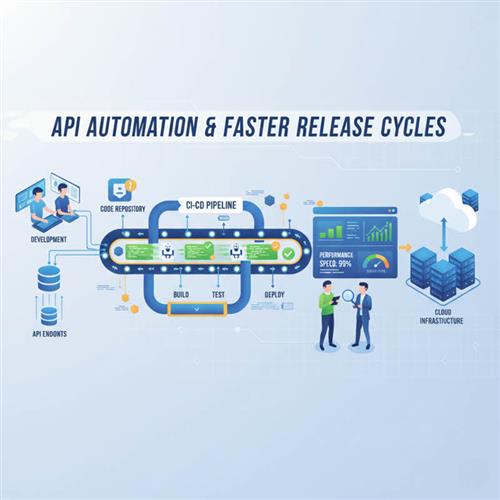

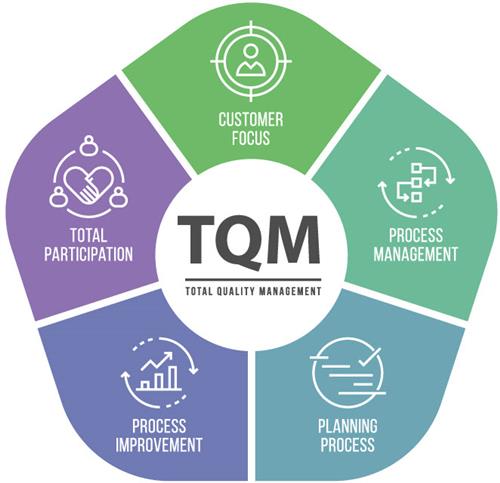


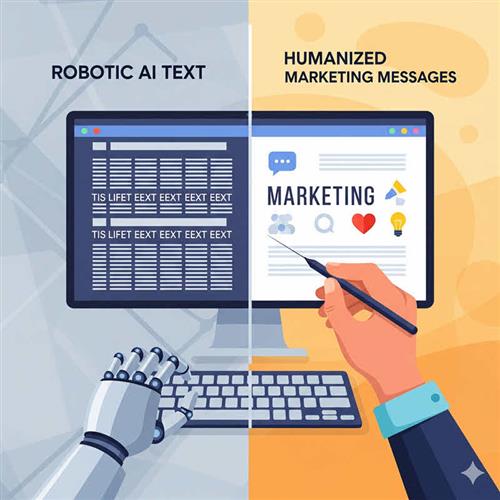
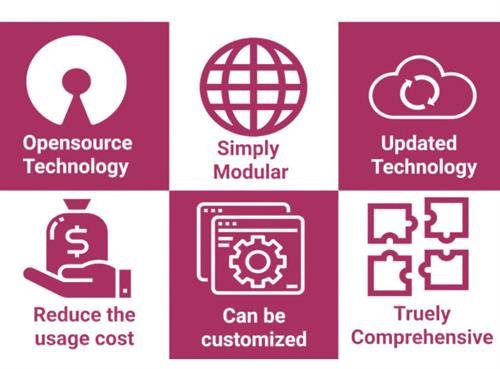
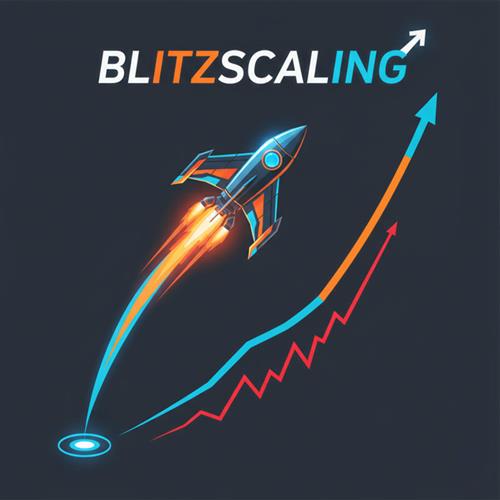


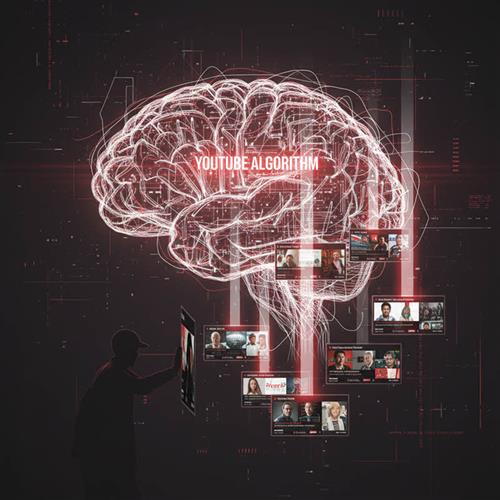
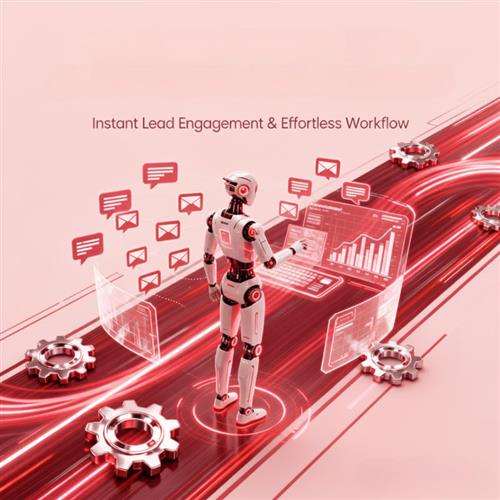


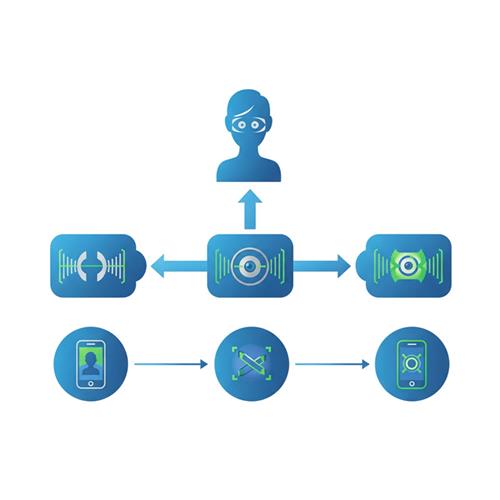


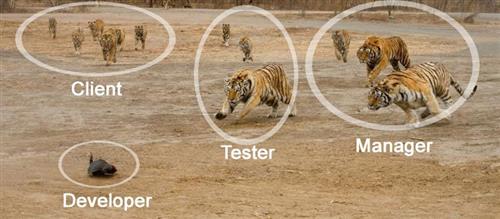









 Link copied!
Link copied!
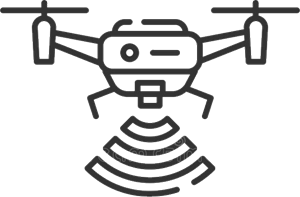 Recently Updated News
Recently Updated News